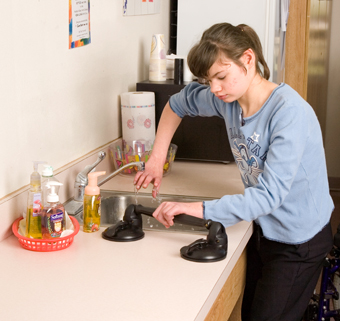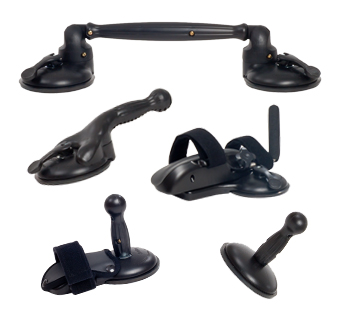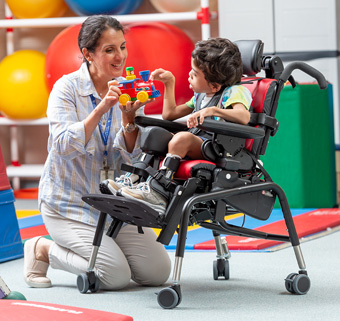Evidence Update: Positioning for Cognition
| May 2016 Motor development in children is closely connected to cognitive development. As children learn new postures and mobility skills they’re increasingly able to explore their environment. This, in turn, helps improve cognition. In order to nurture these same motor and cognitive gains in children with disabilities, therapists use supported positioning techniques to facilitate age-appropriate skills and activities.
Motor development in children is closely connected to cognitive development. As children learn new postures and mobility skills they’re increasingly able to explore their environment. This, in turn, helps improve cognition. In order to nurture these same motor and cognitive gains in children with disabilities, therapists use supported positioning techniques to facilitate age-appropriate skills and activities.
A recent foundational case study highlights how the relationship between motor development and cognition plays out in a direct assessment of cognition. Using the Early Problem Solving Indicator (EPSI), researchers tested a 22 month-old girl with motor impairments on problem-solving behaviors in the prone, supine and sitting positions. It is important to note that the subject, Beth, could maintain the prone and supine positions independently but needed support to maintain her sitting position. This support was provided manually at the minimal necessary level.
True to their hypothesis, the researchers found that Beth demonstrated higher levels of cognitive functioning and problem-solving behaviors in the supported sitting position compared to the prone and supine positions. When Beth’s position changed, so did her problem-solving capacity. The researchers note that within the population of children with disabilities, this may indicate a need to document testing positions in order to get the most accurate assessment of a child’s cognition.
But of overlying importance, this research underlines the understanding that for children with disabilities, the more age-appropriate positions they achieve (even if supported), the more cognitively advanced behaviors they will demonstrate.
As this was only a case study, admittedly there are many limitations (which the researchers freely acknowledge). They conclude that further research is necessary to explore this relationship between supported seating equipment and cognition.
Reference:
O’Grady M, Dusing S. “Assessment position affects problem-solving behaviors in a child with motor impairments.” Pediatr Phys Ther. 2016;28:253-8.




